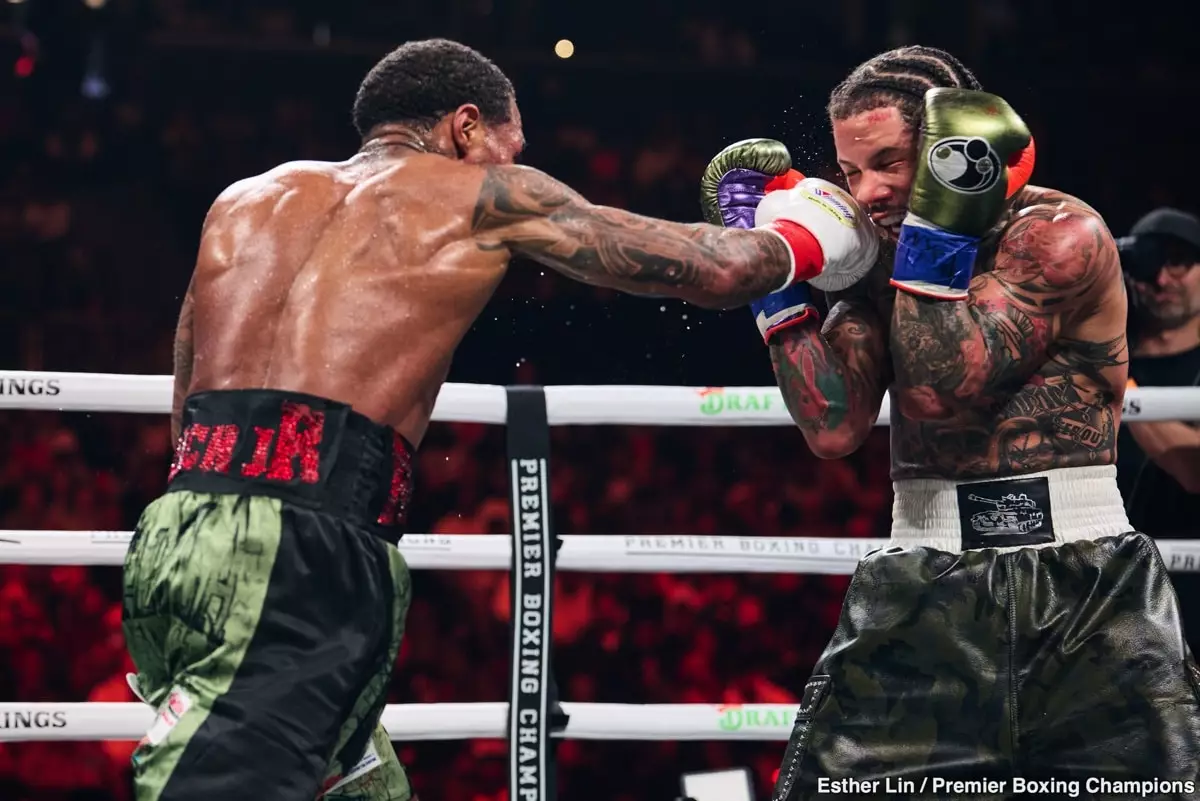In the world of professional boxing, perception can shift dramatically in the blink of an eye, sometimes dependent on a single moment in the ring. Gervonta Davis, a fighter often hailed for his immense talent and explosive power, saw his reputation come under scrutiny after a controversial encounter with Lamont Roach on March 1st at the Barclays Center in Brooklyn. The ninth round of this bout proved to be pivotal—not just for the fight itself but for Davis’s legacy. A moment of vulnerability, wherein Davis called for a timeout to have grease removed from his eyes, has sparked a debate among commentators and fans about his tenacity and mental fortitude.
The Illusion of Strength
Davis’s decision to take a knee and seek assistance during a round customary to battle-tested fighters stands out as a glaring aberration. Typical protocol in the ring does not permit fighters to call their own timeouts—doing so is perceived as a sign of weakness, a blemish on what is otherwise an indomitable warrior’s facade. Commentator Darren Barker articulated this sentiment adeptly, reminding audiences that boxing is the “hurt business,” where self-preservation often conflicts with the unyielding nature required for success. The expectation is not merely to endure but to thrive in the midst of adversity, a quality that may now be viewed with skepticism surrounding Davis.
Refereeing Controversies and Competitive Integrity
What has added insult to injury for Davis is the officiating, or lack thereof, during the bout. The failure of referee Steve Willis to score a critical moment in the ninth round as a knockdown propelled the fight into a majority draw, ultimately enabling Davis to retain his WBA lightweight title. This oversight raises significant concerns regarding the integrity of officiating in the sport. In a high-stakes environment, every call or miscall resonates with enormous ramifications. Davis not only left the ring with a title that some argue he didn’t rightfully earn but also with a cloud of controversy hanging over him—thus leaving fans and analysts questioning the legitimacy of his performance.
A Fighter in Decline?
Barker poses an intriguing question concerning Davis’s motivation and desire in the ring. With ambitions of announcing his intention to exit the sport, one wonders whether the fire that initially fueled his ascent has dimmed. The pre-fight discussions hinted at a strong resolve, yet how does one reconcile that with the visible struggle displayed during the fight? A champion who once dominated his opponents may now appear to be wrestling not only with adversaries in the ring but also with his own will to fight. The fragility of Davis’s psychological resilience became apparent against Roach, showing that the athletes we idolize may, in fact, be susceptible to the pressures of both competition and expectation.
Legacy and Longevity: The Heavy Burdens of Success
As fans and commentators dissect Davis’s performance and consider the broader implications, it becomes clear that maintaining a positive legacy in boxing is a Herculean task. The legacy of a fighter is often built on how they conduct themselves in the face of adversity. Once regarded as an indomitable force, Davis must now work diligently to reclaim that perception. The boxing community has raised its collective eyebrow, and many eagerly await his next move—will he rise to meet the expectations, or will he continue to falter under the weight of his own legacy? The audience will watch intently, hoping to uncover the answer in the unfolding chapters of his career.


Leave a Reply